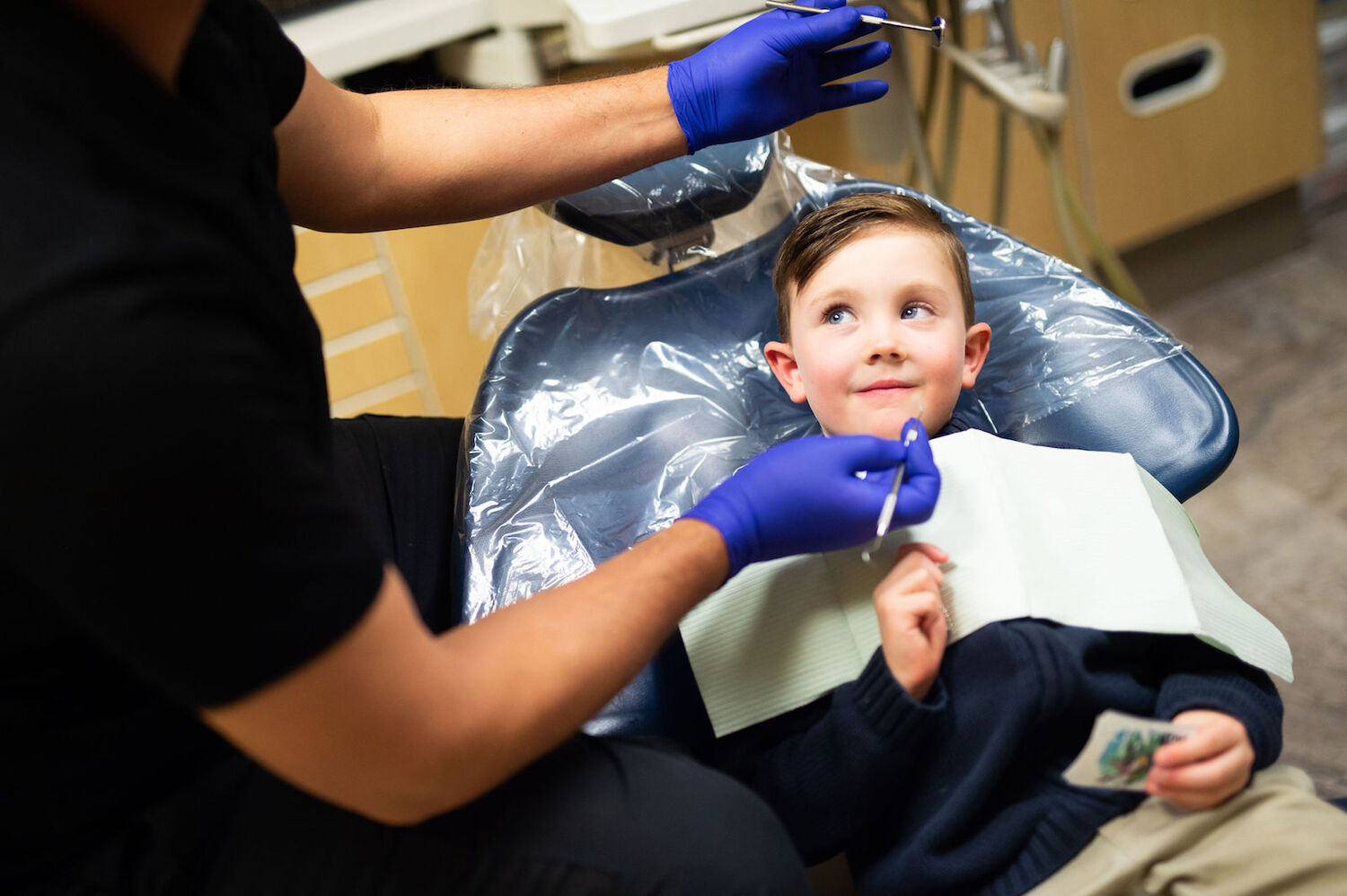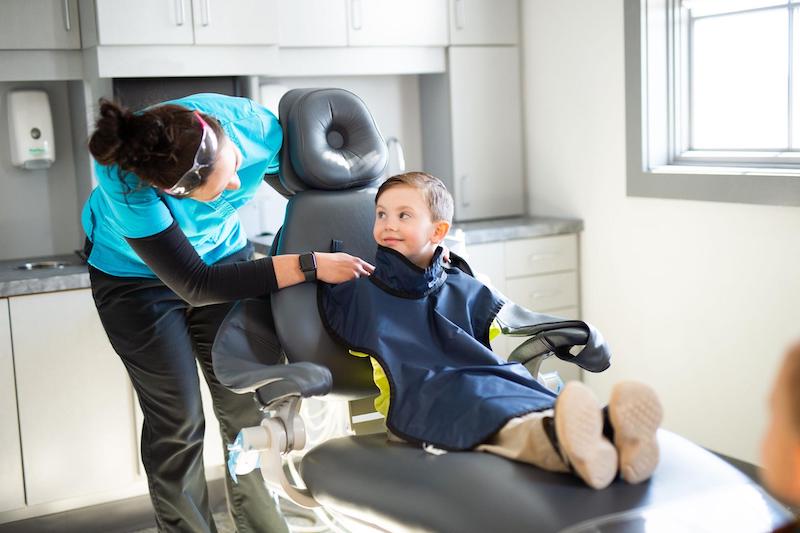Does Your Child have Late Baby Tooth Growth?
You’ll begin looking for those first tiny baby teeth as your newborn turns 6 months old. That first tooth pushing through the gums is an exciting milestone!
While 6-12 months is the usual age a baby gets their first baby teeth, not every child experiences baby tooth growth by that age. If your baby has reached 15 months of age and still hasn’t shown any signs of teething, it may be time to visit your dentist.
At Children’s Dentistry of Charlottesville, we’re here to help your child achieve optimal health, starting with baby teeth. We perform dental examinations and check-ups for children of all ages and look forward to working with you as a parent or guardian to help treat your child’s late baby tooth growth. Contact us today to schedule an appointment.
A general timeline for healthy baby teeth growth
Top Row:
- Central incisor: 8 to 12 months
- Lateral incisor: 9 to 13 months
- First molar: 13 to 19 months
- Canine : 16 to 22 months
- Second molar: 25 to 33 months
Bottom Row:
- Central incisor: 6 to 10 months
- Lateral incisor: 10 to 16 months
- First molar: 14 to 18 months
- Canine: 17 to 23 months
- Second molar: 23 to 31 months
“I’ve taken my kids here for years. I highly recommend this place. The staff are very friendly and always make you feel welcomed. It’s a relaxing atmosphere. Dr. Joe and his team are the best around in my opinion.”
— Kat
Can your child not wait for a scheduled appointment? We offer emergency dentistry appointments
Dental exams help you keep track of your child’s developing teeth, and stop small problems from becoming big ones. We recommend that most children come for an appointment twice a year. Schedule an appointment easily online!
Treating Late Baby Tooth Growth at Children’s Dentistry of Charlottesville
Your child’s first set of teeth should appear around six to twelve months of age, with the teething process beginning around 4-7 months. It’s also not uncommon for an infant to have their first tooth after their first birthday.
Delayed teething, or late baby tooth growth, is when a child has their first tooth after 15 or more months of age. Hereditary factors, poor nutrition, and hormonal imbalance stemming from the thyroid glands are all possible reasons for why your child may be experiencing delayed baby teeth growth. Other factors induce certain medical conditions like Down’s Syndrome or a physical obstruction in the mouth, such as an abnormality in the gums or jawbone.
Your child needs teeth to properly chew and digest solid foods. When you notice that your child still hasn’t exhibited signs of teething after they’re 15 months old, it’s time to let your dentist know and see what treatment options are available for you and your child.
Charlottesville Late Baby Tooth Growth Treatment
Usually, there is no cause to worry over late baby tooth growth. Our friendly, professional dentists would monitor your child’s oral health, examine whether there are any obstructions to normal baby tooth growth, and carefully determine whether and when any dental treatments are needed to prevent future oral complications.
We Accept Most Insurance & Medicaid
We believe every child should have access to the best dental care possible. We proudly accept Medicaid and many other insurance plans, including those from:
- Anthem
- Metlife
- Guardian
- United Concordia
- Delta Dental
- Cigna
Meet Our Doctors & Staff
Our dentists are compassionate, caring, gentle, empathetic, and sensitive to the needs of every child.
Late Baby Tooth Growth FAQ
What will happen if I leave my child’s late baby tooth growth untreated?
Possible complications stemming from delayed teething come to light when your child’s adult teeth emerge. Permanent teeth may come out crooked if baby teeth were late in erupting; also, adult teeth may appear along with the delayed baby teeth, resulting in your child having two rows of teeth.
How can I help my child who is experiencing delayed teething?
Feeding a baby who has no teeth can be challenging. Try cutting the food into tiny cubes your child can “chew” with his or her gums, or blending the food into a puree before feeding.
What causes late baby tooth growth?
Delayed teething can be related to a number of factors, including:
- Hereditary factors
- Poor nutrition
- Fibrosis (unnaturally thick gums)
- Hormonal issues
- Systemic diseases and medication
- Injuries
- Impacted teeth
- Genetic disorders
- Absent or missing teeth
My child has Special Needs and has trouble at the dentist. Can you still treat their late baby tooth growth?
In most cases, we can perform basic dental x-rays, exams, and cleanings for children who have Special Needs. Our Charlottesville cavity dentists are experienced and enjoy working with kids who have Special Needs, including kids with Cerebral Palsy, Down Syndrome, children on the Autism Spectrum, and children who deal with dental anxiety.
We’ll do our best to help your child relax so they can receive the dental care they need. In some cases, we will recommend nitrous oxide (laughing gas) or other sedation dentistry options.
Learn More About Our Complete Offering of Dental Services

Children’s Dentistry of Charlottesville
Address: 1470 Pantops Mountain Pl Ste 1 Charlottesville, VA 22911 (Click for Directions)
Hours: Mon-Thur: 8AM-5PM | Fri: 8AM-4PM
Phone: (434) 260-6836
Fax: (434) 817-1819



